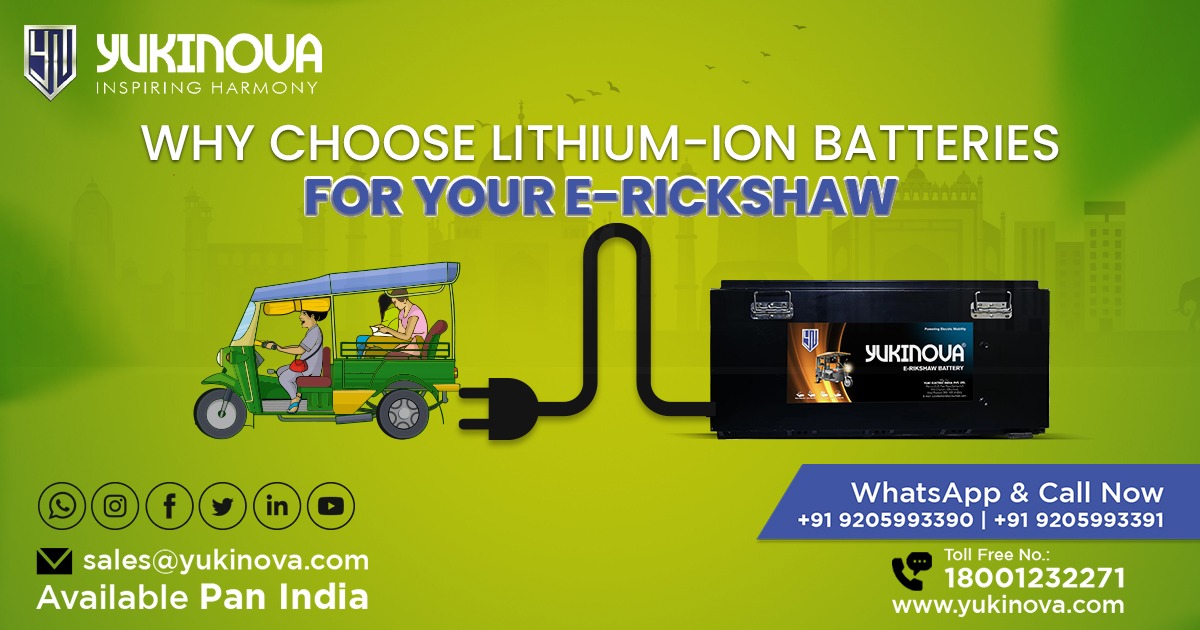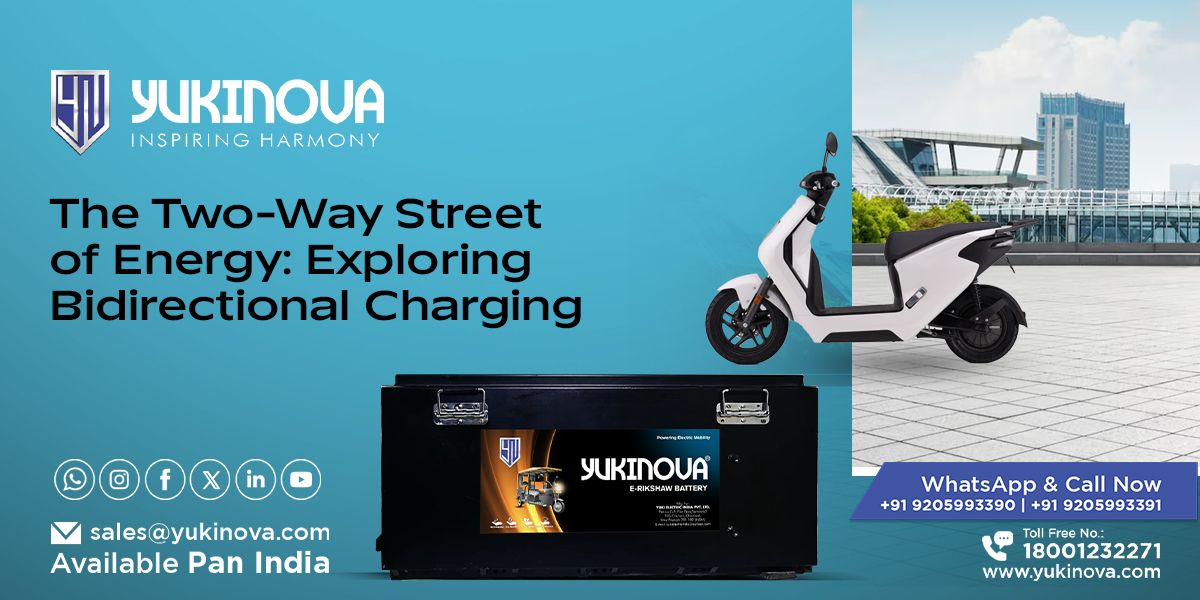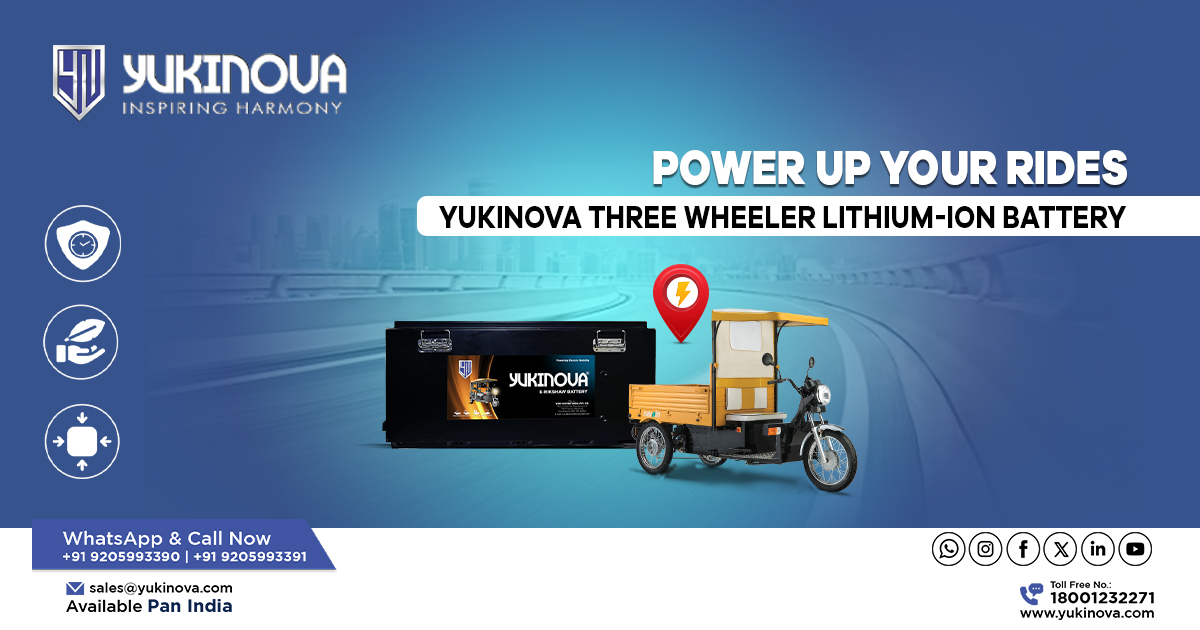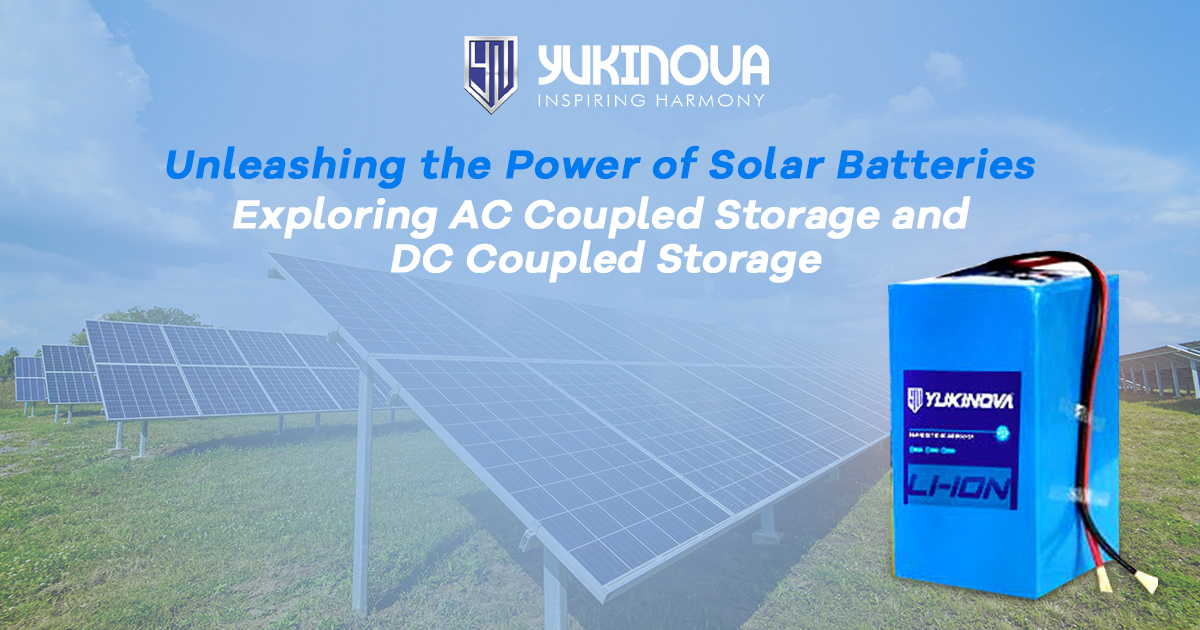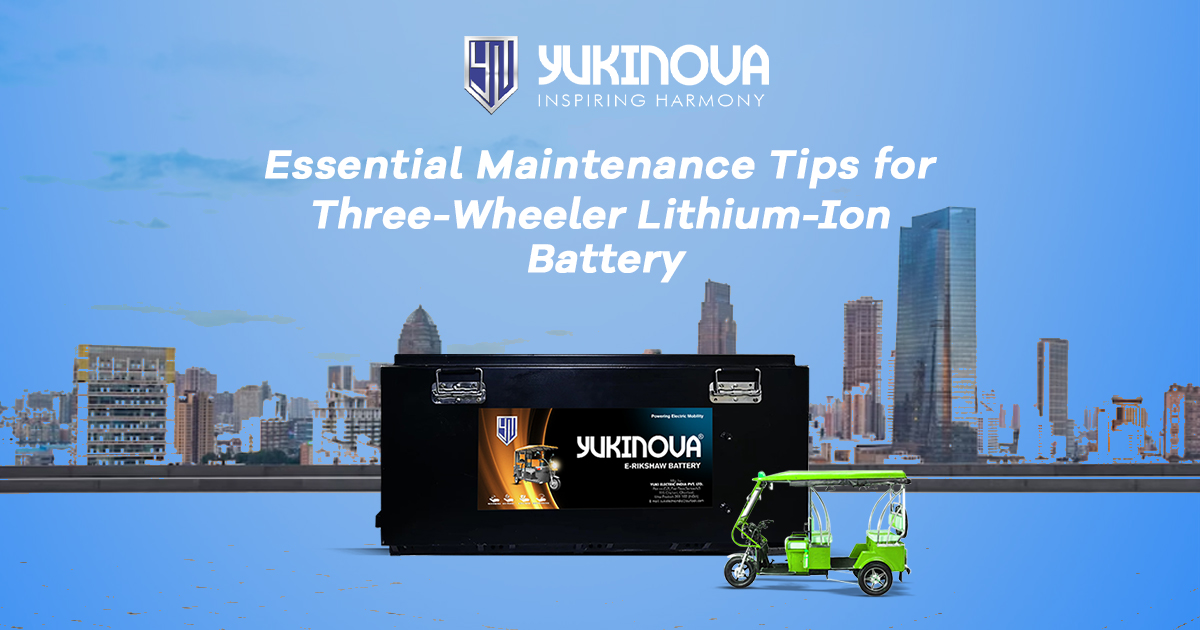In the era of sustainable transportation, electric rickshaws, or E-rickshaws, have emerged as a popular
mode of eco-friendly urban mobility in India. These battery-powered vehicles offer an environmentally
conscious alternative to traditional fuel-powered rickshaws, reducing carbon emissions and promoting
cleaner air in congested city streets. At Yuki Electricals, under our brand Yukinova, we’re leading the
charge in revolutionizing E-rickshaw technology with our advanced lithium-ion batteries. In this article,
we’ll delve into the reasons why lithium-ion batteries are the ideal choice for powering E-rickshaws and
why Yuki Electricals is the premier lithium-ion E-rickshaw battery manufacturer in India.
The Rise of Lithium-Ion Batteries in E-Rickshaws
As E-rickshaws gain popularity across India’s urban centers, the demand for reliable and efficient energy
storage solutions has never been higher. While lead-acid batteries have traditionally been the go-to
choice for E-rickshaws, lithium-ion batteries are quickly becoming the preferred option due to their
numerous advantages. Lithium-ion batteries offer higher energy density, faster charging times, longer
lifespan, and lower maintenance requirements compared to lead-acid batteries, making them the ideal
choice for powering E-rickshaws in India’s bustling cities.
Why Choose Lithium-Ion Batteries for Your E-Rickshaw?
Extended Range: Lithium-ion batteries boast higher energy density compared to lead-acid batteries,
allowing E-rickshaws to travel longer distances on a single charge. With Yukinova lithium-ion batteries,
E-rickshaw drivers can cover more ground and serve more passengers without the need for frequent
recharging, enhancing productivity and profitability.
Fast Charging: Lithium-ion batteries offer rapid charging capabilities, allowing E-rickshaw drivers to
recharge their batteries quickly during breaks or downtime. With Yukinova lithium-ion batteries, E-
rickshaw drivers can minimize charging times and maximize uptime, ensuring seamless operation
throughout the day.
Longer Lifespan: Lithium-ion batteries have a significantly longer lifespan compared to lead-acid
batteries, lasting up to four times longer on average. This means fewer battery replacements and lower
total cost of ownership for E-rickshaw owners, translating to greater savings and improved profitability
over the vehicle’s lifetime.
Lower Maintenance Requirements: Unlike lead-acid batteries, which require regular watering and
maintenance, lithium-ion batteries are virtually maintenance-free. With Yukinova lithium-ion batteries,
E-rickshaw owners can enjoy peace of mind knowing that their batteries require minimal upkeep,
allowing them to focus on their core business operations without the hassle of battery maintenance.
Environmental Sustainability: Lithium-ion batteries are more environmentally friendly than lead-acid
batteries, as they contain fewer toxic chemicals and are recyclable at the end of their lifespan. By
choosing Yukinova lithium-ion batteries for their E-rickshaws, drivers can reduce their carbon footprint
and contribute to a cleaner, greener future for India’s cities.
Yuki Electricals: Your Trusted Lithium-Ion E-Rickshaw Battery Manufacturer
in India
As a pioneer in lithium-ion battery technology, Yuki Electricals is committed to delivering cutting-edge
energy storage solutions that power India’s sustainable transportation revolution. Our Yukinova lithium-
ion batteries are engineered to meet the demanding requirements of E-rickshaw applications, offering
unmatched performance, reliability, and efficiency. With our state-of-the-art manufacturing facilities,
stringent quality control measures, and commitment to customer satisfaction, Yuki Electricals is the
premier choice for lithium-ion E-rickshaw batteries in India.
With their superior performance, efficiency, and environmental sustainability, lithium-ion batteries are
revolutionizing the E-rickshaw industry in India. As the country’s leading lithium-ion E-rickshaw battery
manufacturer, Yuki Electricals is at the forefront of this transformation, empowering E-rickshaw drivers
with advanced energy storage solutions that power progress and drive change. Choose Yukinova
lithium-ion batteries for your E-rickshaw and join us in shaping a cleaner, greener future for India’s
cities.
